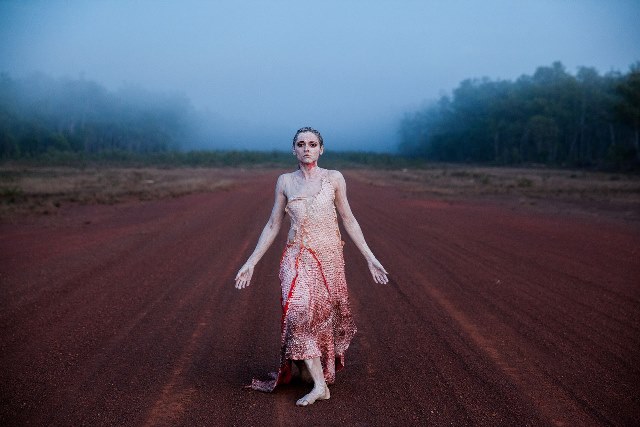17 February 2016, preview screening, Arc Cinema, National Film and Sound Archive, Canberra
No doubt about it, Stephen Page’s Spear is a confronting film, and one in which the director’s approach is absolutely uncompromising. But it is also an incredibly beautiful film from so many points of view.
Spear centres on the spiritual journey of a young man, Djali, played by Hunter Page-Lochard, who seeks to understand what it is to be an Indigenous man suspended between two, often conflicting worlds. As he moves between those two worlds we encounter with him the pressures and problems that surround him, including substance abuse, alcoholism, suicide, and racism.
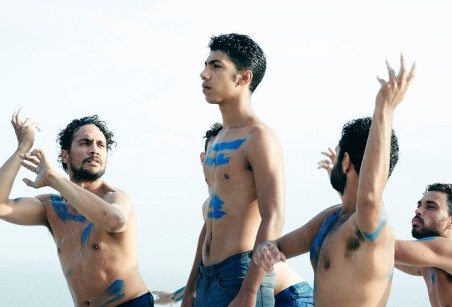
Some moments are (deliberately) quite crass—a dance to the 1960s song ‘My Boomerang Won’t Come Back’, for example. Others are immensely powerful—such as a scene where Daniel Riley as ‘Prison Man’ engages with Elma Kris as ‘Old Woman’ who brings the cleansing power of a smoking ceremony into the prison mess hall. And others are breathtaking in their use of landscape as backdrop—the view of Kaine Sultan Babij as ‘Androgynous Man’ stalking through long grass and between trees is striking, as are the scenes in which Yolande Brown as ‘Earth Spirit’ walks along a red dust road.
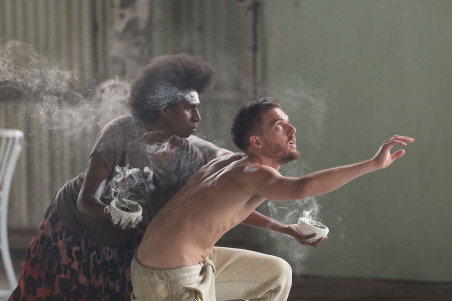
Choreographically Page has delivered some of his best movement, whether in solo work for the main members of the cast, or in group scenes. And so powerful are the performances by the cast that there is absolutely no doubt about the message being put forward. Sound is everywhere too. An original score by David Page is complemented by songs from Djakapurra Munyarryun, although spoken text in English is minimal and is mostly delivered by actor Aaron Pedersen who plays the part of ‘Suicide Man’. And there is a suicide scene, which is very deftly handled. Ochre is everywhere as well, in all its four colours. It seems to permeate the production whether as paint on bodies or dust in the air.
What makes this tough, fearless, uncompromising film so quietly beautiful? Visually it is stunning. Director of photography Bonnie Elliott has delivered some amazing shots of an incredible landscape from outback to rugged coastline, and some of the camera angles and close-up shots are just breathtaking. Even her takes on run-down interiors, under-ground spaces and alley ways are moving. And Jacob Nash’s work as production designer gives the film a particular strength. As in his sets for Bangarra’s live shows, Nash has brought to the film an understanding of the power of minimalism in design. But perhaps more than anything it is Stephen Page’s ability to deliver the ultimate message of hope that stands out. The closing scene is a ‘punch the sky’ moment. Simple, direct and moving.
Spear is Stephen Page’s debut as director of a feature-length film. It is a remarkable film. Go see it.
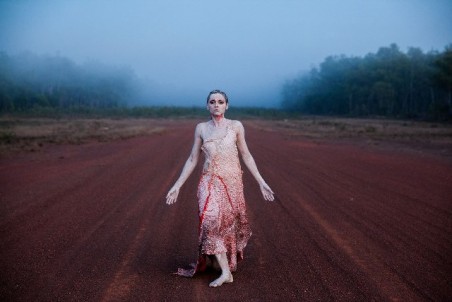
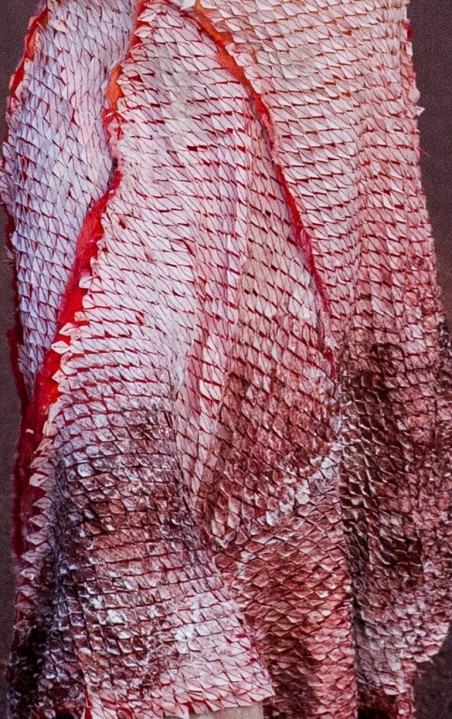
Michelle Potter, 19 February 2016
